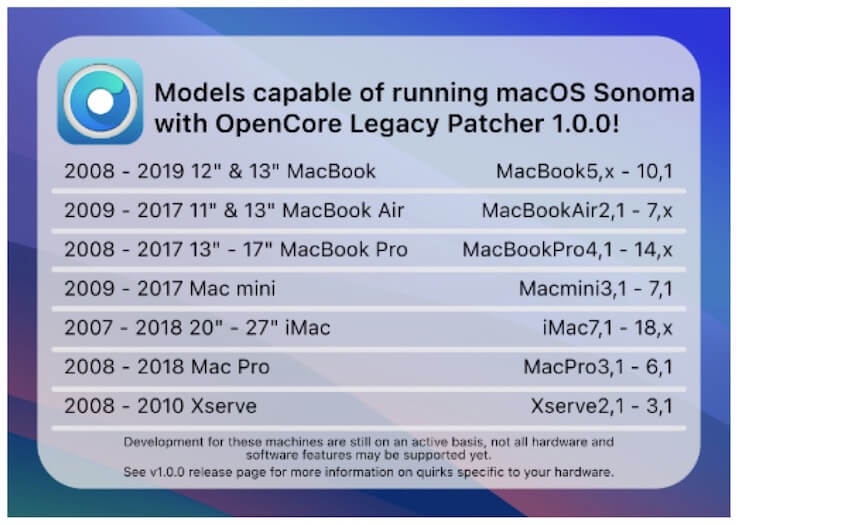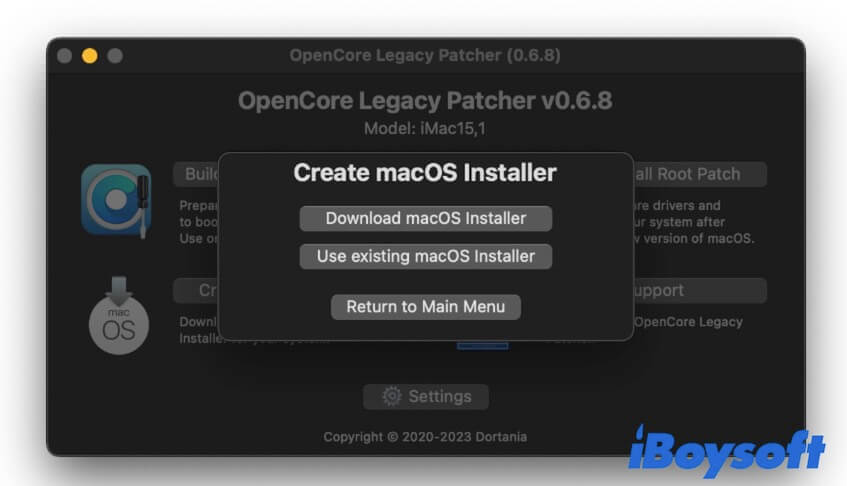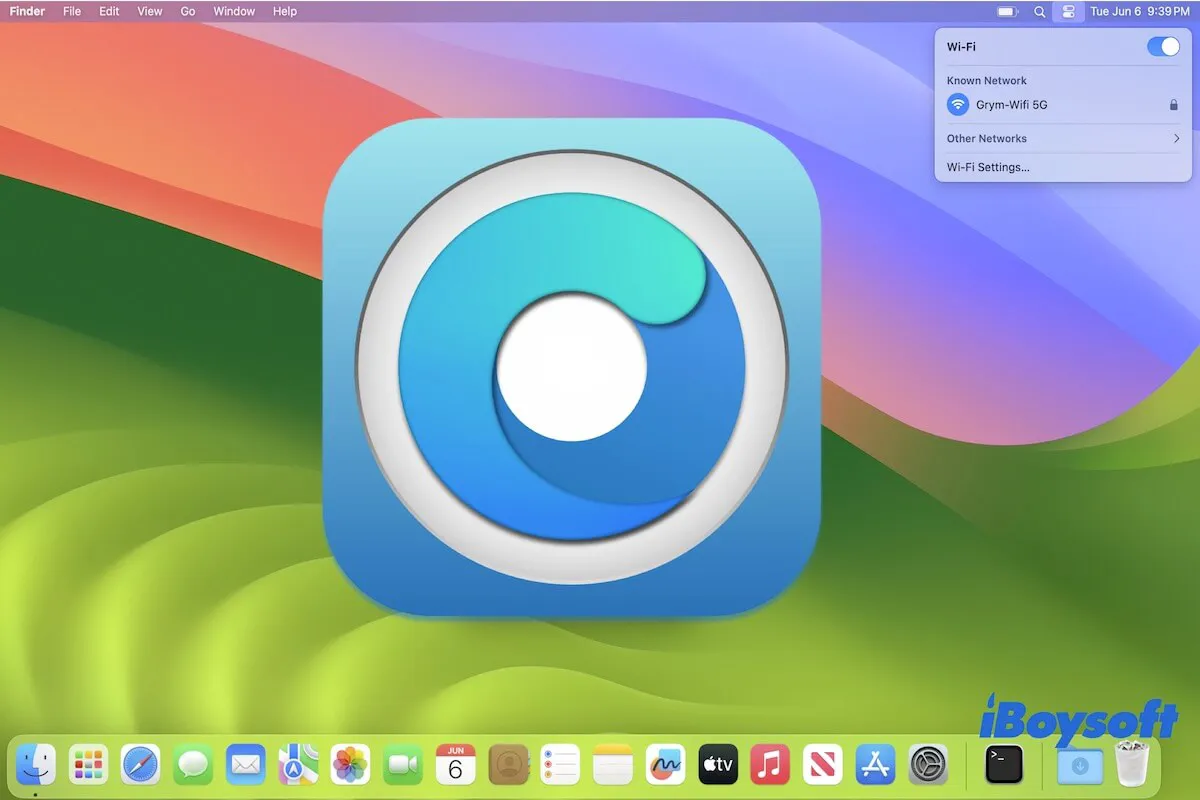You come into contact with the OpenCore Legacy Patcher when installing macOS Tahoe Beta, macOS Sequoia, macOS Sonoma, or another version on an unsupported Mac. If you want to learn what the OpenCore Legacy Patcher does and whether it is safe to use the OpenCore Legacy Patcher to install an incompatible macOS on your Mac, just follow this post to get answers.
What is OpenCore Legacy Patcher on Mac & what does it do?
The OpenCore Legacy Patcher (abbreviated as OCLP) is an open-source tool and project that enables the installation and booting of macOS on non-Apple-made or incompatible hardware.
In other words, it allows macOS, like macOS Sequoia, to run on unsupported Mac devices, particularly those that Apple has officially declared obsolete and no longer receive official macOS updates.
Designed and developed by a passionate community, OpenCore Legacy Patcher is used to extend the life and usability of older Mac computers. It allows you to explore the latest macOS, such as macOS Tahoe 26 and macOS Sequoia.

Go tell others what the OpenCore Legacy Patcher is.
Is OpenCore Legacy Patcher legal?
OpenCore Legacy Patcher is a legitimate utility. If you just use it to install macOS on unsupported and old Mac models, OpenCore Legacy Patcher doesn't make any illegal changes. If you utilize this project to run macOS on a Windows PC, this behavior may be regarded as illegal by Apple Inc.
Don't sweat it. It is no problem to personally use OpenCore Legacy Patcher to run the latest macOS on your incompatible Mac.
Is OpenCore Legacy Patcher safe?
It is necessary to note that some potential risks, such as instability, incompatibility, kernel panic, etc., may happen if you run OpenCore Legacy Patcher to run macOS like Sequoia on an unsupported Mac.
Although OpenCore Legacy Patcher can make it possible to boot macOS on unsupported Mac computers, Apple's existing intended limitations can still cause Mac's features or hardware components to not work perfectly.
How to download and use OpenCore Legacy Patcher?
OpenCore Legacy Patcher is an open-source tool. You can download OpenCore Legacy Patcher from the GitHub website.
To make macOS run on incompatible Macs, you need to download OpenCore Legacy Patcher, configure it for your specific Mac model, and then use OpenCore Legacy Patcher to create a bootable USB installer. Next, boot your Mac from the created USB installer and install OpenCore Legacy Patcher on your target Mac.

You can refer to these articles to use OpenCore Legacy Patcher to install macOS on unsupported Mac computers:
How to install Sonoma on an unsupported Mac?
What is the difference between OpenCore and OpenCore Legacy Patcher?
OpenCore Legacy Patcher is a part of OpenCore. OpenCore is a boot loader that offers greater flexibility for macOS installation and configuration on older Macs. It involves configuring boot loader settings and creating custom EFI configurations to make macOS work on unsupported hardware.
OpenCore Legacy Patcher is a tool that simplifies the process of running macOS on older Macs by providing a patch or fix for specific compatibility issues. It typically involves fewer manual configurations compared to OpenCore.
Here are the main differences between OpenCore and OpenCore Legacy Patcher:
- OpenCore is more customizable when compared with Legacy Patcher.
- OpenCore is more complex as it requires the user's deep understanding of system configurations, while Legacy Patcher is more straightforward in operations.
- OpenCore is more stable and has higher compatibility in the long run, but Legacy Patcher is usually used for specific macOS versions and models and may have certain limitations.
If you like this post, share it with more people.
